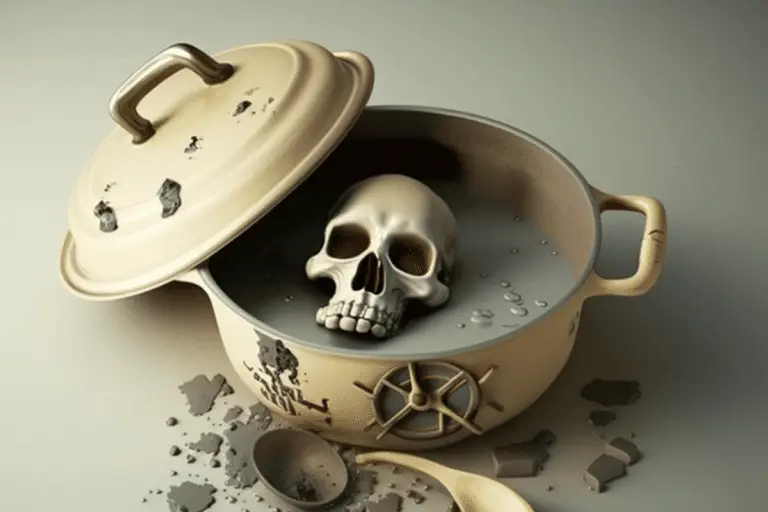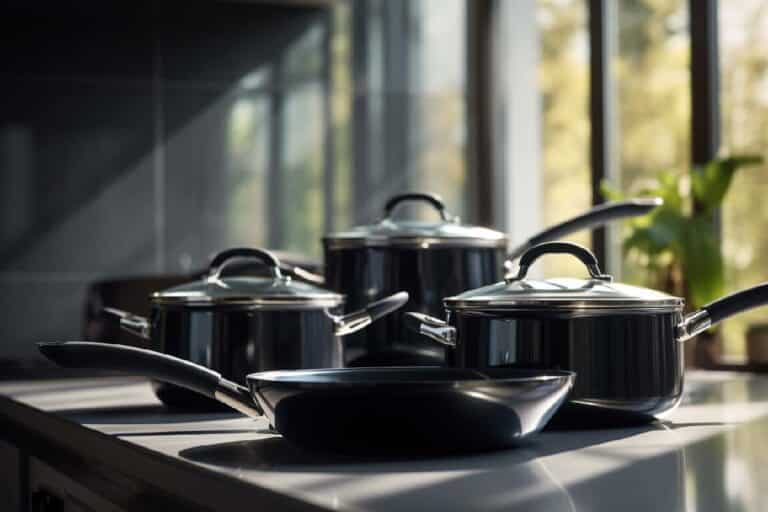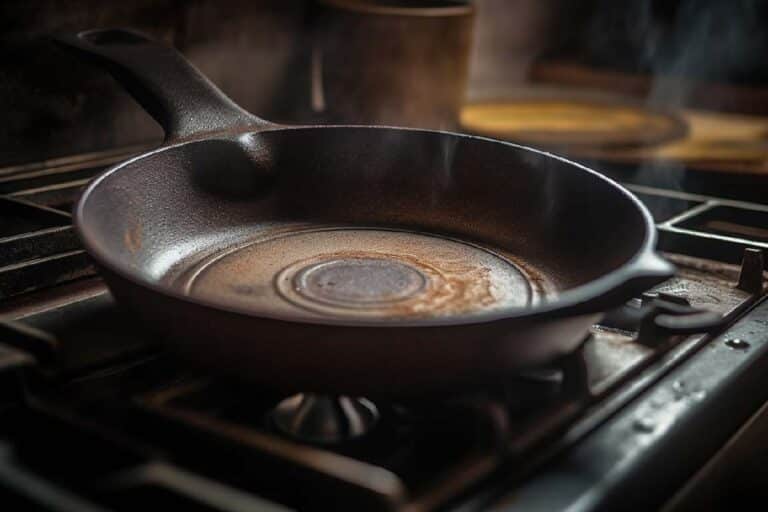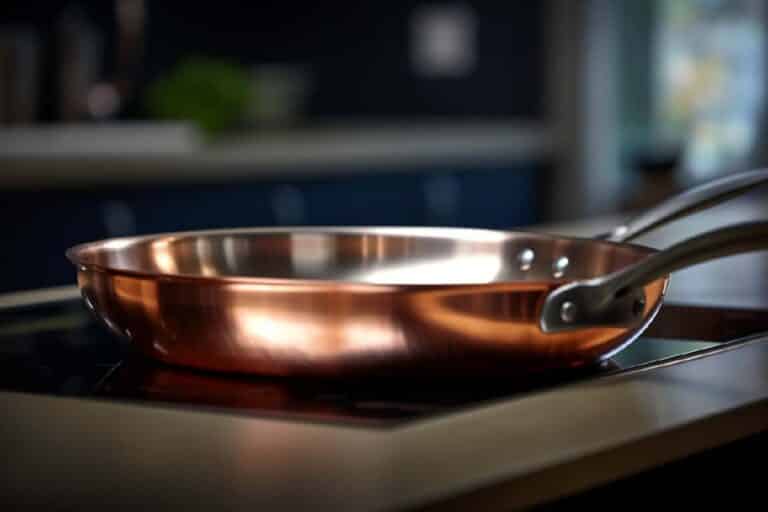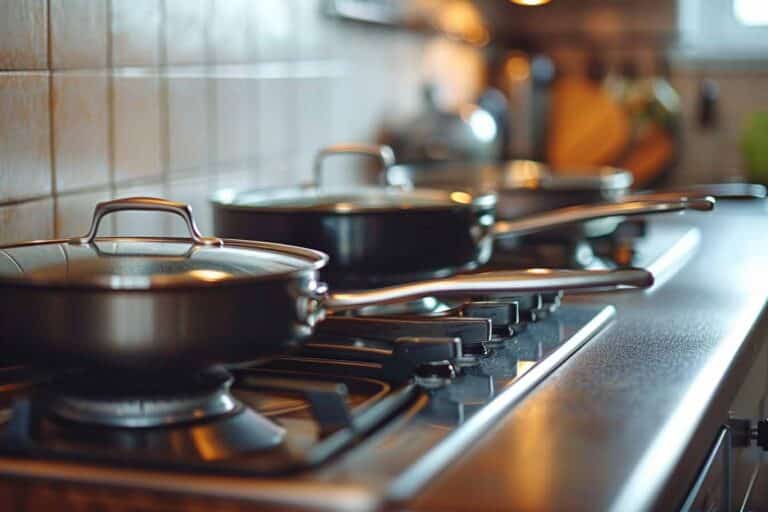Is It Safe to Cook in a Rusty Cast Iron Pan?
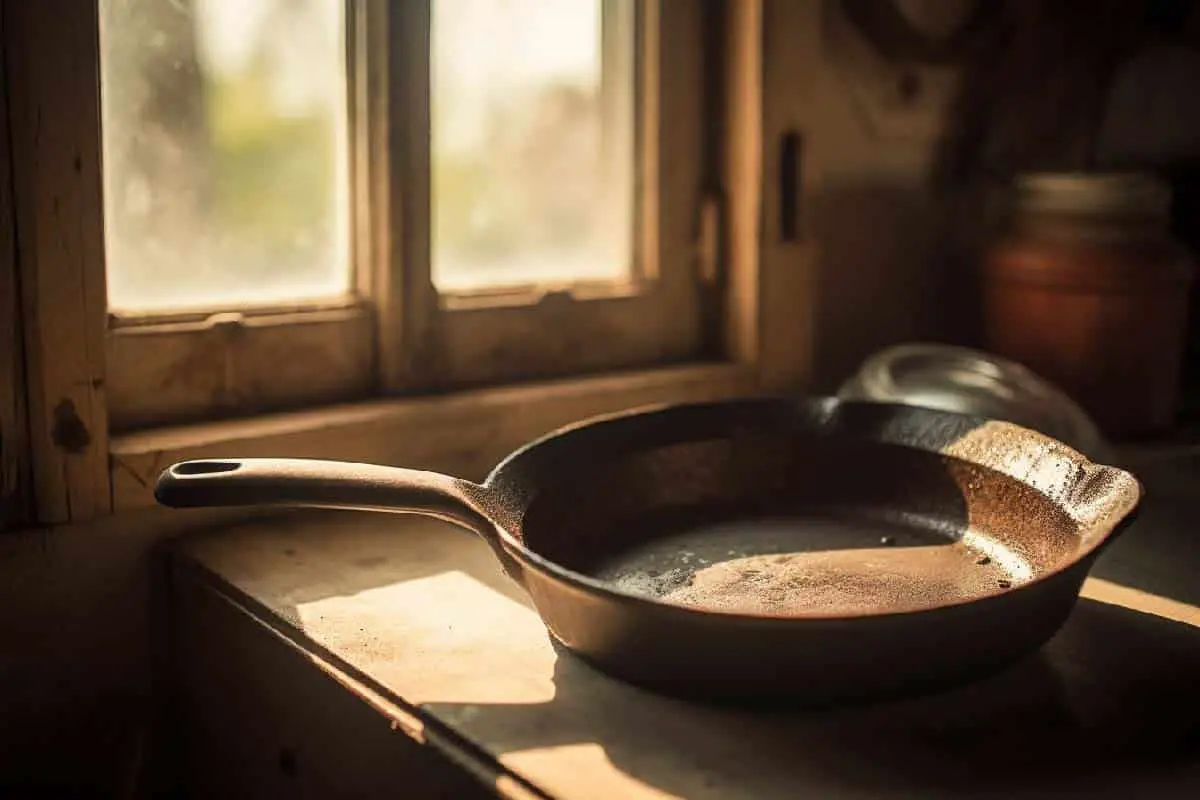
Is it safe to cook in a rusty cast iron pan? Have you ever worried if the rust on your old pan is going to cause some health concern?
In this article, I will teach you everything you need to know about using a rusty cast iron pan, whether it’s safe and the potential dangers in different scenarios.
What is rust?
The rust on a cast iron skillet is caused by the metal oxidizing, or undergoing reaction with oxygen. In this case, water, salt and other food particles can speed up the oxidation process.
It’s typically a brown colour, but it could also be black, depending on the type of iron and how long the pan has been exposed to water.
Rust is essentially a form of corrosion that can make cast iron pots and pans unsafe to cook in.
Is rust dangerous to ingest?
Yes, it is. Rust can harbor bacteria and other pathogens, mainly when it harbors in corners of the cast iron pot. When using a cast iron pan for cooking food, be careful about storing the pan. Ensure that there are no chips or cracks on the pan’s surface that could allow micro-organisms to infect the food.
The USDA has stated that rust is not a food-safe material, so you should assume it’s dangerous.
What should I do if I have rusty cast iron cookware?
Cast iron is not as porous as other pans, which means that it heats up quickly and remains hot long after the heat source has been removed. You can cook with a rusty cast iron skillet, but you should make sure to clean it first. If the pan is really rusty and has crusted-on bits, scrub the skillet with a stiff brush or steel wool and hot water. Rinse it thoroughly with clean water. Let the skillet dry completely before you start cooking in it again, so that any remaining rust doesn’t get on your food.
The main risk from using a rusty cast iron pan is ingesting rust particles, which can cause stomach upset. However, if you clean the pan thoroughly before using it again and avoid cooking with acidic foods like tomatoes or vinegar (which will react with the iron), you shouldn’t get any rust in your food.
If a cast iron pan is really rusty, it could affect the pan’s structural integrity, in this instance, you’ll need to throw it away. You can normally tell if your cast iron cookware is affected too much by rust just by looking at it, if it’s only surface rust then the structural integrity won’t be affected, however if it’s deep rust then it’s quite possible it has been affected and should not be cooked with.
How to properly clean rust off cast iron cookware
It would be best if you didn’t clean rust off of your cast iron cookware in your kitchen sink as the water may penetrate the rust and make it harder to remove. Instead, it would help if you used a heavy-duty stainless steel wire sponge.
These sponges come in hundreds of designs with different shapes, but most are round with extra long wires. They will make it easier for you to clean rust off of your cast iron cookware in all the corners.
You do not have to use one of those sponges. However, a small scrub pad with coarse cornstarch can also work well if you don’t have one of those wire sponge sponges.
Whichever product you choose to clean the rust, start scrubbing the rust off with it while the cast iron pan is dry. Using this method should help with removing all the rust.
If you still have any stubborn rust leftover, try soaking it in white vinegar for 30 minutes and then scrubbing it again as the acid from the vinegar should soften the rust.
What should I do after I’ve cleaned the rust off?
Once you’ve thoroughly cleaned it, you’ll need to season your cast iron pan again. The seasoning will add a protective barrier and prevent further rust from forming.
After you’ve seasoned your pan, make sure you take preventative measures to stop rust from coming back. Such as storing it in a dry environment, thoroughly drying it after washing, and not leaving it to soak in liquids.
How to restore a rusty cast skillet
Cast iron skillets are typically made of molecules that have been ‘bonded’ together to form a metal. This type of bonding is called carbon steel, and it makes the skillet more durable and durable than other materials.
Some of the ways that a cast iron pan can become rusty is through exposure to water, oil or food.
A rust-free skillet requires some maintenance on a regular basis, but it is completely possible to restore a rusty cast iron skillet.
The most basic way of restoring the rust on a cast iron pan is by using steel wool or sandpaper and then washing the pan with soap and water.
Another way to restore a rusty cast iron skillet is by using a product called ‘Flitz’, which you can purchase online or at any hardware store.
Flitz is a paste that you rub onto the rust with a rag which will then remove the rust. After you have removed all of the rust from your cast iron skillet, it is recommended to coat it with oil and bake it at 350 degrees for an hour or so.
After it has cooled, the pan will be restored to its original condition.
Why do cast iron skillets become rusty?
Cast iron skillets are made from cast iron as the name suggests, which is a type of metal. Metal can become rusty if it comes in contact with water and the air has oxygen in it. When water comes in contact with air, a chemical reaction occurs that breaks down the metal and creates rust. This process is called oxidation.
Rust can also form when cast iron skillets are left to sit for long periods of time without being used. This is called “seasoning rust.”
Preventing rust on cast iron pans
To prevent a cast iron skillet from becoming rusty, it’s important to season the pan with cooking oil and then store it in an area that is dry and has little to no oxygen such as a cupboard. This will reduce the amount of oxidation and the seasoning will create a protective barrier. Using these two strategies correctly, your cast iron pans will last a lifetime without rust.
How fast do cast iron skillets rust?
Cast iron pans are great for cooking because they have a long-lasting nonstick coating (seasoning) and do not require as much oil to cook with. However, the surface of these skillets is vulnerable to rust once the seasoning starts to wear off.
Cast iron cookware can rust extremely quickly, in a matter of days if it’s not cared for. Even leaving a cast iron pan wet after washing it overnight will cause rust to form.
However, It takes a long time for cast iron skillets to rust when they are properly cared for by seasoning them before use, drying them thoroughly, and storing them appropriately.
Can you get tetanus from a rusty cast iron skillet?
The chances of getting tetanus from a rusty cast iron skillet is low. Tetanus is caused by bacterium called Clostridium tetani, and this bacterium is most commonly found in soil, dust and manure.
So considering your cast iron cookware will be in the kitchen, it’s unlikely it will have the bacterium known to cause tetanus.
However, some cast iron cookware such as Dutch ovens, are commonly used outside, especially when camping. Therefor if your cast iron cookware has been left outside and has developed rust, it’s best to avoid using it.
Can you cook on a rusty cast iron grill?
Again the same applies, if your cast iron grill is in your kitchen, then it will be ok to cook on it providing the rust hasn’t penetrated too deeply and affected the structural integrity of the grill.
However, if the grill is outside such as a barbeque, then I would strongly advise cleaning the rust off before using it as the bacterium which causes tetanus thrives in the rust and not the cast iron itself.
Also, cooking on a rusty cast iron grill will affect the flavor of your food as it will be absorbed into the food.
